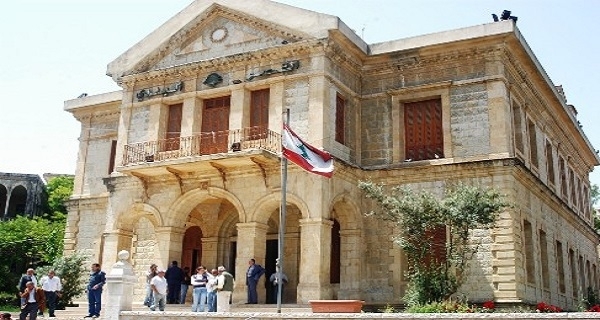Municipalities of Lebanon : Dissolution of 71 Municipal Councils
Municipal by-elections took place twice. The first time was in May 2012 when the by-elections covered 57 municipalities, 31 of which had been dissolved (or excluded from the 2010 elections such as the Municipality of Aabey and the Municipality of Ain Drafeel) and 26 were newly introduced. The second by-elections were held in March 2013 and covered 21 municipalities, of which 10 had been dissolved and 11 were newly introduced. Some of the municipal councils broke apart in the first few weeks after the elections and others were even dissolved more than once, such as the Municipality of Al-Bireh in Akkar, the Municipality of Sahbine in Western Beqa’a and the Municipality of Hjoula in Byblos. Resignations were common in quite a few municipalities but those remained operative from the legal perspective on the grounds that they still maintained more than half their members.
Dissolution of Municipalities
According to Articles 22, 23, 24 and 25 of the Legislative Decree No. 118 dated June 30, 1977 (Law of Municipalities), a municipal council may be dissolved or considered dissolved in the following two cases:
- By a duly reasoned decree formulated in the Cabinet upon the proposition of the Minister of the Interior and Municipalities in the case where the municipal council commits recurrent substantial violations that prove to be detrimental to the interest of the municipality.
- If the municipal council loses at least half of its members due to death or resignation (resignation is usually submitted to the governor or Qaim Maqam) or if its election is annulled by an official ruling. The Minister of the Interior and Municipalities shall announce the dissolution of the council within maximum of one week from notifying the Ministry of the Interior and Municipalities thereof. Should the municipal council be dissolved or considered dissolved, a new council should be elected within a two-month period from the date of the dissolution decree/decision (although the government has not abided by this period and many councils remain dissolved for months or even years). In such a case, the Qaim Maqam, the Head of the Division at the Qaim Maqamiyah, the Governor, or the General Secretary at the Mohafaza Center may take on the duties of the municipal council until the election of a new municipality, pursuant to a decision issued by the Minister of Interior and Municipalities. If the municipality is dissolved six months before the expiry of its tenure, no elections will be held.
Dissolved Municipalities
Between May 2010 and July 2014, 71 municipalities have been dissolved for the different reasons stated below.

Problems of Municipality Dissolution
The dissolution of the municipal council and the failure to hold elections within two months from the dissolution disrupts the municipal work and thrusts the political parties and the families into a state of competition as they lie in wait for the elections, especially that the major responsibilities of the Qaem Maqam or the governor and the numerous municipalities that would fall under their jurisdiction after dissolution may render them incapable of duly attending to municipal duties. Dissolved Municipalities
Between May 2010 and July 2014, 71 municipalities have been dissolved for the different reasons stated below.

شاهد الجدول كاملا

شاهد الجدول كاملا

شاهد الجدول كاملا

شاهد الجدول كاملا

شاهد الجدول كاملا
In July 2014, Lebanon was home to 1,014 municipalities, seven of which were newly introduced and are run by the Qaim Maqam, the Governor or an official at the Qaim Maqamiya or the Mohafaza. There are also 28 municipalities that have been dissolved and entrusted to the above mentioned authorities. As for the remaining existing municipalities, they do not necessarily accomplish their mandated tasks and are for the most part impaired entities marred by partisan and familial disputes. This should be a motive for redefining the role, functions and means of municipalities and to discuss and call into question the feasibility of the presence of so many municipalities in Lebanon.








Leave A Comment